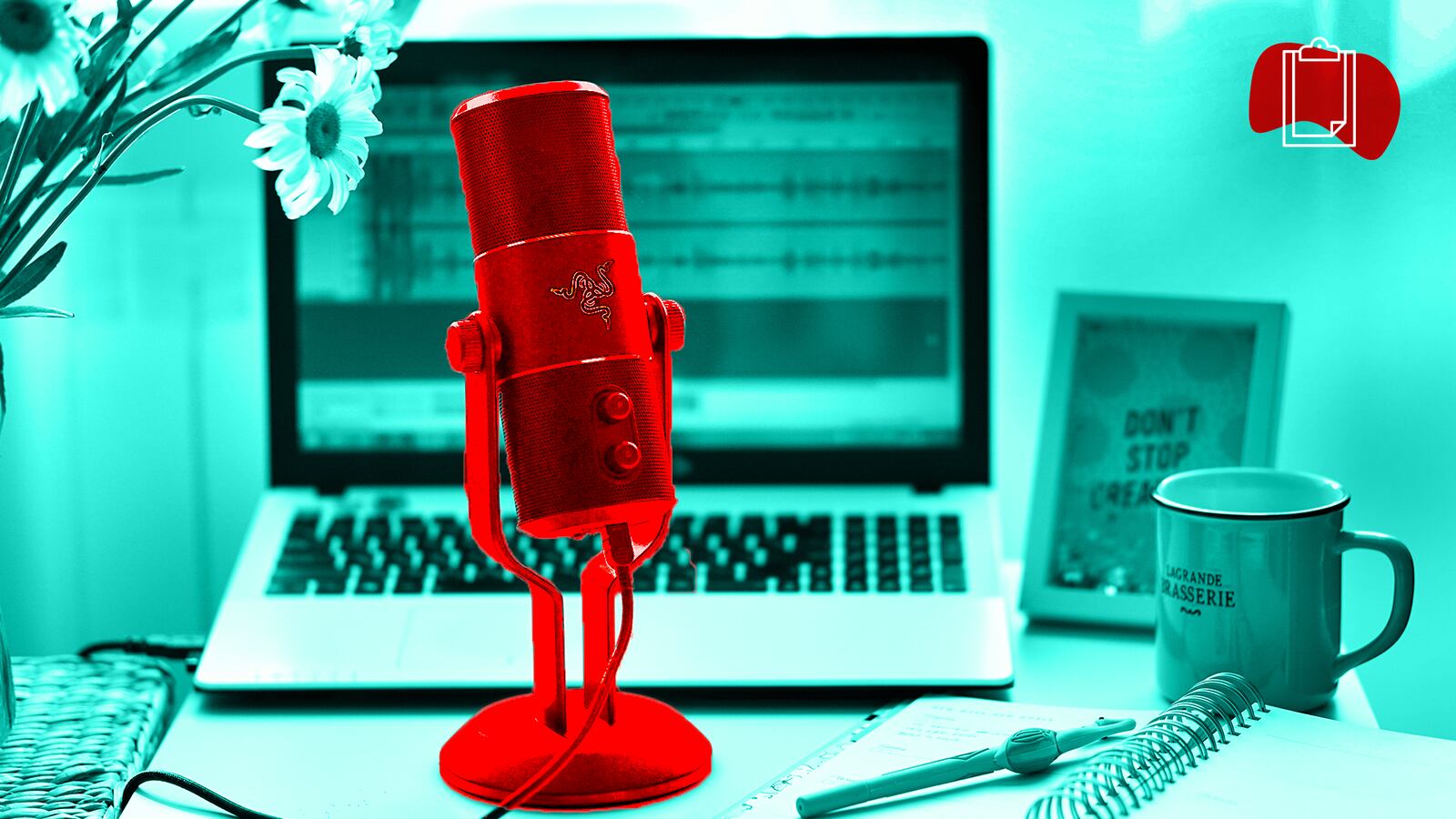By Sarah Watts
As Dr. Joy Harden Bradford describes it, her love for human psychology started on the front porch of her grandmother's home in Louisiana. As her relatives gathered to talk and share stories, she started getting curious “about human behavior,” she says. “I wanted to know what was going on in the world, and why people do the things they do.”
Fast forward many years later, and Bradford has a career doing exactly that—but on a scale she never could have imagined as a young girl in Louisiana, an undergrad psych major, or an on-campus mental health practitioner for college students. In addition to a small private practice from her home base in Atlanta, Bradford is now also the CEO of Therapy For Black Girls, an online mental health community, and the host of a podcast by the same name that generates 500k listeners each month. The platform and the podcast both are Bradford's way of providing mental health education and a therapeutic space for Black women to thrive. It's something, she says, that would not have been possible for her career pre-Internet.
Like scores of other mental health practitioners, Bradford went to work at a larger institution after receiving her degrees, serving as the Director of Counseling and Disability services at Clark Atlanta University in Atlanta, GA. When she realized that Black students weren't coming to her office as often as their white peers, she started blogging as an avenue to reach them. When she added a directory of therapists to her blog in December 2016, and then launched a podcast just a few months later, her platform exploded. Now, Therapy For Black Girls is her full-time work, and she divides her time between producing the podcast and managing a subscription community called Sister Circle, aimed at providing a supportive space for Black women.
Bradford is quick to clarify that accessing her through her podcast or as part of Sister Circle is not the same as having a therapeutic, practitioner-client relationship. Still, the platform allows her to provide information on mental health in a way she never could have otherwise. “We therapists know that there are so many people who should be in therapy that will never come,” Bradford says. “So there's a responsibility to share that information in larger ways, whether it's through a workbook or a podcast. A huge benefit of the platform is that I can reach so many more women. There's no way I could have had this level of impact in a private practice.”
Although Bradford's career is non-traditional, more and more therapists are taking to social media platforms to create online, subscription-based communities, either in lieu of a traditional mental health practice or as a way to supplement one.
Nicole LePera, Founder of @The.holistic.psychologist on Instagram and author of the NYT best-selling book How to Do the Work, explains in her book that she launched her platform in order to “integrate everything I’d learned from mainstream psychology with all the new research on mind-body healing.” For LePera, “holistic psychology” is an online platform with over 3 million followers, as well as a new modality of healing, meant to address the “mind, body, and soul” of the person seeking help, she writes.
Like LePera and Bradford, many other therapists have stepped in to build online platforms of their own, complete with books, journals, self-guided courses, and tiered-membership support groups. It's a business model that works well for the practitioner—income is no longer capped, like it would be at a traditional nine-to-five job in an academic or institutional setting—but can also be beneficial for those seeking help.
“When you come together in a group or in the comments section of a blog post or on Instagram, there's something really powerful knowing that you're not the only one struggling with a particular thing, and you're not alone in what you're feeling.” And while being in the community isn't therapy, strictly speaking, Bradford says, it's still an accessible, affordable way for people to pick up helpful resources for their own mental health journey. More than once, Bradford's private practice clients have found her through the podcast or group. “I did not anticipate referrals coming from the podcast, but I've learned it is a great way to fill a practice,” she says.
In the same way LePera has used her platform to create a new healing modality, Bradford says that launching her platform via the Internet has given her a freedom to craft her career exactly the way she wants it. On the podcast and in Sister Circle, Bradford often hosts discussions “at the intersection of psychology and pop culture,” discussing everything from the grief of losing a rap icon to the emotions spurred by the characters in a television show. She loves it—and it's clear that her monthly listeners, all 500,000 of them each month, do too.
“I definitely think the Internet has made an incredible difference in terms of what we can do in providing mental health services and just having the freedom to craft a career to look like what you want,” she says. “It's given me a lot of ways to share with the larger community.”





